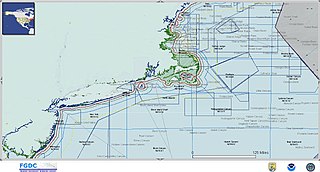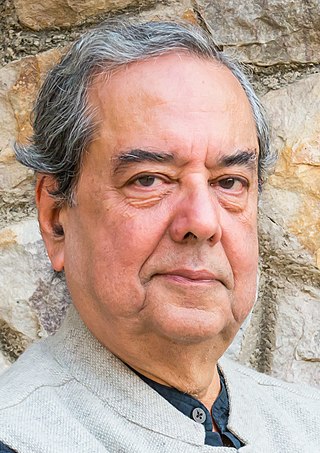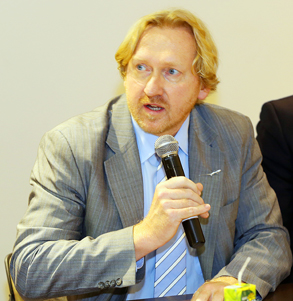Related Research Articles

Environmental laws are laws that protect the environment. Environmental law is the collection of laws, regulations, agreements and common law that governs how humans interact with their environment. This includes environmental regulations; laws governing management of natural resources, such as forests, minerals, or fisheries; and related topics such as environmental impact assessments. Environmental law is seen as the body of laws concerned with the protection of living things from the harm that human activity may immediately or eventually cause to them or their species, either directly or to the media and the habits on which they depend.

The United Nations University (UNU) is the think tank and academic arm of the United Nations. Headquartered in Shibuya, Tokyo, Japan, with diplomatic status as a UN institution, its mission is to help resolve global issues related to human development and welfare through collaborative research and education.
Environment and Climate Change Canada is the department of the Government of Canada responsible for coordinating environmental policies and programs, as well as preserving and enhancing the natural environment and renewable resources. It is also colloquially known by its former name, Environment Canada.

The Bureau of Oceans and International Environmental and Scientific Affairs (OES) is a functional bureau within the United States Department of State. The Assistant Secretary of State for Oceans and International Environmental and Scientific Affairs coordinates a suite of portfolios related to oceans, environmental, polar, scientific, fisheries, wildlife, conservation, and natural resource and health affairs that affect U.S. foreign policy interests. The Assistant Secretary reports to the Under Secretary of State for Economic Growth, Energy, and the Environment.

Environmental impact assessment (EIA) is the assessment of the environmental consequences of a plan, policy, program, or actual projects prior to the decision to move forward with the proposed action. In this context, the term "environmental impact assessment" is usually used when applied to actual projects by individuals or companies and the term "strategic environmental assessment" (SEA) applies to policies, plans and programmes most often proposed by organs of state. It is a tool of environmental management forming a part of project approval and decision-making. Environmental assessments may be governed by rules of administrative procedure regarding public participation and documentation of decision making, and may be subject to judicial review.

The United Nations University Institute in Macau, formerly the United Nations University International Institute for Software Technology and then United Nations University Institute on Computing and Society, is a United Nations University global think tank conducting research and training on digital technologies for sustainable development, encouraging data-driven and evidence-based actions and policies to achieve the Sustainable Development Goals. UNU-Macau is located in Macau, China.

Environmental crime is an illegal act which directly harms the environment. These illegal activities involve the environment, wildlife, biodiversity and natural resources. International bodies such as, G7, Interpol, European Union, United Nations Environment Program, United Nations Interregional Crime and Justice Research Institute, have recognized the following environmental crimes:

The Wildlife Enforcement Monitoring System (WEMS) Initiative, brainchild of environment policy researcher Remi Chandran, is an environmental governance project developed for assisting in monitoring the effectiveness of enforcement and compliance of wildlife law at a national level. The purpose of WEMS initiative is to monitor trafficking and illegal wildlife crime through a joint effort carried out by United Nations bodies, national governments, private industries, civil society and research institutions, by building a common data collection and reporting mechanism at a national level. The project plans to bring together various national institutions to a common information sharing platform and thereby building the capacity of the states to manage knowledge on wildlife crime trends and threat assessments. The compiled data will be then analyzed and selected non nominal information will be made available online through the WEMS website. WEMS will also help in providing analysed information electronically to all the national enforcement agencies and international policy makers including Interpol and CITES Secretariat. Selected information will be shared with the public for bringing awareness about wildlife Crime. The WEMS initiative works by bringing together Customs, Police, and Forest to a common information sharing mechanism within the national government and this will improve inter agency cooperation in tackling environmental crime holistically. Research and analysis of the crime data will be carried out through a designated national research Institute which will also carry out policy analysis identifying the trends and reasons for non compliance. It will also attempt to analyse the legal decisions on wildlife crimes from data obtained from local courts and will be able to identify weakness in legislation if any. Apart from this, the carriers involved in the illegal trade will also be recorded.
The Wildlife Enforcement Monitoring System will provide the platform for our enforcement agencies to collect and share information on the trends and patterns of wildlife crime. Moreover, the cross-border nature of wild life crime underscores the need to enhance cooperation among our governments and to pool financial and human resources. I am confident that these measures will go a long way in enhancing our capacity to protect our wildlife resources.

Marine spatial planning (MSP) is a process that brings together multiple users of the ocean – including energy, industry, government, conservation and recreation – to make informed and coordinated decisions about how to use marine resources sustainably. MSP generally uses maps to create a more comprehensive picture of a marine area – identifying where and how an ocean area is being used and what natural resources and habitat exist. It is similar to land-use planning, but for marine waters.
Solving the E-waste Problem (StEP) is a membership organization that is part of United Nations University and was created to develop solutions to address issues associated with electronic waste. Some of the most eminent players in the fields of Production, Reuse and Recycling of Electrical and Electronic Equipment (EEE), government agencies and NGOs as well as UN Organisations count themselves among its members. StEP encourages the collaboration of all stakeholders connected with e-waste, emphasising a holistic, scientific yet applicable approach to the problem.

The WISDOM Project is a bilateral research project between Germany and Vietnam, focusing on the creation of a Water related Information System for the Mekong Delta. Initiated by the Vietnamese and the German Government it was started in the year 2007, and is planned to continue until the year 2013. Water-related Information System for the sustainable Development of the Mekong Delta in Vietnam
Environmental governance (EG) consists of a system of laws, norms, rules, policies and practices that dictate how the board members of an environment related regulatory body should manage and oversee the affairs of any environment related regulatory body which is responsible for ensuring sustainability (sustainable development) and manage all human activities—political, social and economic. Environmental governance includes government, business and civil society, and emphasizes whole system management. To capture this diverse range of elements, environmental governance often employs alternative systems of governance, for example watershed-based management. Obviously, in fact the EG arrangements are very diversed and not at all as inclusive as we could wish them to be.

The United Nations University Institute on Comparative Regional Integration Studies (UNU-CRIS) is a Research and Training Institute of the United Nations University (UNU). Based in Bruges, Belgium since 2001, UNU-CRIS specializes in the comparative study of regional integration and the provision of global and regional public goods, including environmental stability, poverty reduction, peace, and justice.

The Mines and Geo-sciences Bureau (MGB) is a government agency of the Philippines under the Department of Environment and Natural Resources (DENR). The MGB is responsible for the conservation, management, development and use of the country's mineral resources, including those in reservations and public lands.
Command and Control (CAC) regulation finds common usage in academic literature and beyond. The relationship between CAC and environmental policy is considered in this article, an area that demonstrates the application of this type of regulation. However, CAC is not limited to the environmental sector and encompasses a variety of different fields.

Tan Sri Zakri bin Abdul Hamid has had a distinguished career in science as a researcher, educator, administrator and diplomat.

Ashok Khosla is an Indian environmentalist currently based in Delhi. He received his PhD in experimental physics from Harvard University with a doctoral dissertation in the hyperfine structure of hydrogen halide isotopes. He is the co-chair of United Nations Environment Programme’s International Resource Panel (UNEP-IRP) and is internationally known for pioneering and contributing to sustainable development. He is recognized for popularizing the word and concept of "sustainability" in international forums. He was actively involved in various projects that defined the environmental views and activities of institutions such as UNEP, UNESCO, UNU, the U.S. Academy of Sciences, IUCN, and the ICSU/SCOPE. He was also the President of IUCN and Club of Rome. Ashok Khosla is member of the World Future Council.
The United Nations University Institute for Integrated Management of Material Fluxes and of Resources (UNU-FLORES), established in 2012, is one of the 13 institutes that make up the United Nations University (UNU) — a global think tank and postgraduate teaching organisation headquartered in Tokyo, Japan.

Bradnee Chambers was an expert on international environmental governance, law and politics. In March 2013 he was appointed as the Executive Secretary of the Convention on the Conservation of Migratory Species of Wild Animals (CMS), a main United Nations multilateral conservation treaty He was also the acting Executive Secretary of the Gorilla Agreement and the Agreement on the Conservation of Small Cetaceans in the Baltic, North East Atlantic, Irish and North Seas (ASCOBANS) both administered under the UN Environment Programme. These agreements form the global framework for conservation of wild animals migrating between countries. The agreements cover an immense scope of wildlife including whales, dolphins, sharks, elephants, big cats, bats, monarch butterflies, saiga antelope, waterbirds, and migratory fish.

Reza Ardakanian is an Iranian professor, politician and former Minister of Energy of Iran, a position he had held from 29 October 2017 to 25 August 2021. He was previously deputy energy minister in the 1980s and 1990s and has been involved with UN-Water.
References
- Chandran, Remi, Robert Hoppe, W.T. De Vries, & Yola Georgiadou (in press). Conflicting policy beliefs and informational complexities in designing a transboundary enforcement monitoring system. Journal of Cleaner Production
- Chandran, R., Krishnan, P., & Nguyen, K. (2011). Wildlife Enforcement Monitoring System (WEMS): A solution to support compliance of Multilateral Environmental Agreements. Government Information Quarterly, Volume 28, Issue 2, April 2011, Pages 231–238. doi : 10.1016/j.giq.2010.09.002
- African Wildlife Monitored and Protected
- Boosting CITES -Jacob Phelps, Edward L. Webb, David Bickford, Vincent Nijman and Navjot S. Sodhi (2010), Science Journal
- New UN database to help combat wildlife crime – 4 June 2007, Reuters.
- UN University launches system to combat illegal wildlife trade – 28 September 2006, Japan Times (Kyodo News)
- 国際連合大学が野生動物の違法取引監視システムをESRI社のGISを用いて構築
- Will regional monitoring systems help in environmental governance? A case study on the WEMS model for monitoring enforcement of CITES Convention.